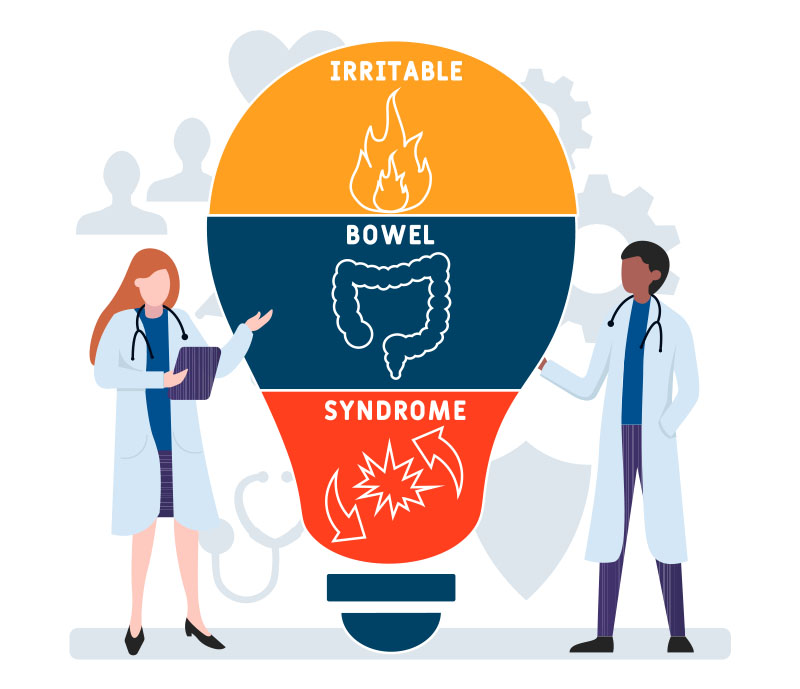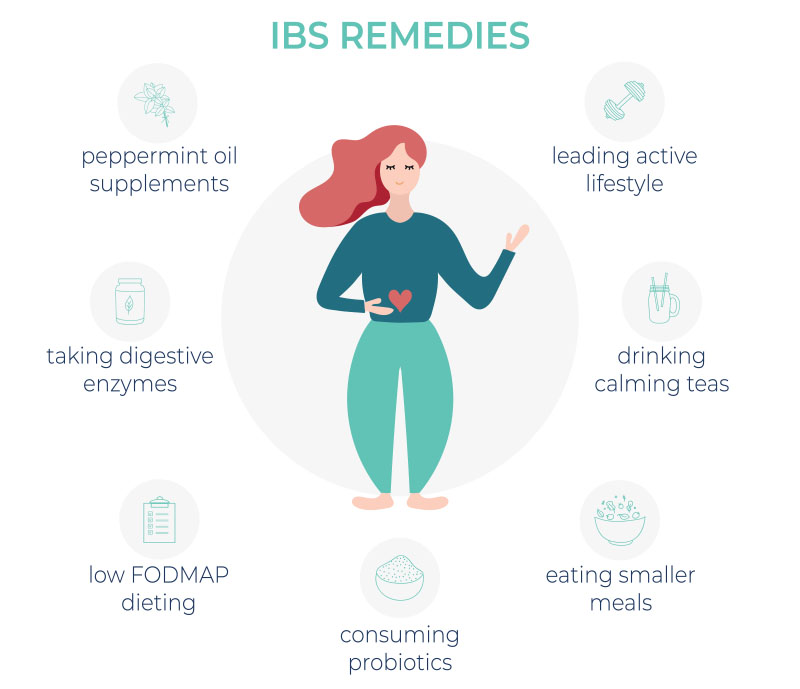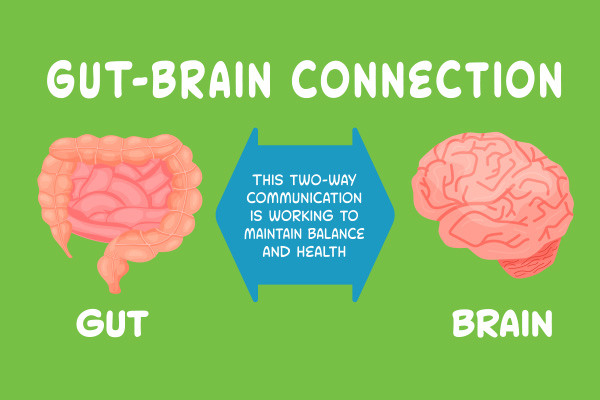IBS, GER, GERD, FGID, DGBI
IBS (irritable bowel syndrome), GER (gastroesophageal reflux), GERD (gastroesophageal reflux disease), and other FGIDs (functional gastrointestinal disorders), all fall under the medical classification of DBGIs (disorders of gut-brain interactions) which involve problems with the intestinal system and the gut-brain axis.

What is IBS?
Irritable bowel syndrome (IBS) is a group of symptoms that occur together that cause repeated pain in the abdomen and changes in bowel movements (e.g., diarrhea, constipation, or both). These symptoms can occur without any detectable signs of damage or disease in the digestive tract, but the pain and discomfort are very present and real.
Functional gastrointestinal disorders (FGIDs) such as IBS are now referred to by gastroenterologists as disorders of gut-brain interactions (DGBIs) because scientists now know how closely linked your brain and gut are. The nerves in your brain run throughout your intestinal system. Some scientists refer to the gut as the body’s second brain.
DGBIs like IBS can cause your intestinal tract to be more sensitive than it should be and changes how the muscles in your bowel contract, which in turn results in problems with diarrhea, gas, constipation, frequency of bowel movements, pain, and bloating.
Does IBS have other names?
In the past, IBS was called IBS colitis, spastic colon, nervous colon, spastic bowel, and mucous colitis.
Currently, there are different categories of IBS based on the different patterns or irregularities of your bowel movements. Some treatments work only for some types of IBS or can make other types worse.
The different types of IBS
- IBS with constipation (IBS-C): on the days you have at least one abnormal bowel movement, more than ¼ of your stools are hard or lumpy, and less than ¼ are loose or watery
- IBS with diarrhea (IBS-D): on the days when you have at least one abnormal bowel movement, more than ¼ of your stools are loose or watery, and less than ¼ are hard or lumpy
- IBS with mixed bowel habits (IBS-M): on the days when you have at least one abnormal bowel movement. More than ¼ of your stools are hard or lumpy and more than ¼ of your stools are loose or watery

What are some of the remedies that help IBS?
Your provider will work with you to find remedies and possible medications that may help your IBS symptoms. With professional guidance from a medical provider, nutritionist, and therapist, these remedies might include a change in eating habits, lifestyle habits, prebiotics or probiotics, calming teas, and relaxation techniques, among other remedies.
What are the risk factors for IBS?
Factors that can increase your chance of having IBS include:
- Having a severe infection in your digestive tract
- Having a family member with IBS
- Being a woman
- Being younger than age 50
- A history of stressful or difficult life events, such as abuse, in childhood
What are GER
and GERD?
Gastroesophageal reflux (GER) occurs when the contents of your stomach come back up into your esophagus. Many people have GER from time to time. Gastroesophageal reflux disease (GERD), on the other hand, is a more serious and chronic condition in which mild acid reflux occurs at least twice a week or moderate to severe acid reflux occurs at least once a week. These repeated symptoms of acid in the esophagus can cause damage to the lining and other complications over time.

Some people can manage the discomfort of GERD with lifestyle changes and over-the-counter medications, but others may need stronger medications or even surgery to ease their painful symptoms.
To reduce the symptoms of GERD, your healthcare provider may recommend weight loss if you are obese or overweight, avoiding foods and drinks that make your symptoms worse, and eating 2 to 3 hours before lying down for sleep. Working with a nutritionist and your medical providers is an important first step in addressing GER and GERD.
What are the symptoms of GERD?
Common symptoms of GERD include:
- A burning sensation in your chest (heartburn), typically after eating and often worse at night
- Difficulty swallowing or a sensation of a lump in your throat
- Chest pain (without shortness of breath or jaw or arm pain)
- Regurgitation of food or the taste of sour liquid
If you have nighttime acid reflux, you might also experience:
- Laryngitis
- Chronic cough
- Disrupted sleep
- New or worsening asthma
See your healthcare provider if:
- You experience severe or frequent GERD symptoms
- Take over-the-counter medications for your GERD more than twice a week
What are FGIDs (also known as DGBIs)?
Disorders of gut-brain interactions (DGBIs), also known as functional gastrointestinal disorders (FGIDs), can affect any part of your gastrointestinal tract which include your esophagus, stomach, and intestines. These are disorders of function (how the GI tract works), as opposed to structural or biochemical abnormalities.

DGBIs and FGIDs refer to any group of gastrointestinal symptoms related to any combination of the following:
- Motility disturbance (abnormal movement inside the bowels)
- More intense abdominal pain than usual in response to some stimulus
- Changes to the bowel’s mucous membrane and immune response (a.k.a, leaky gut)
- Changes to the normal microbes found in a healthy gut
- Changes in how the brain processes pain and other GI symptoms
Each of the various DGBIs are then categorized by the appropriate anatomical region in which they occur.
Effective treatment for disorders of gut-brain interactions requires a multi-faceted approach. The disorders are best addressed by a team of healthcare providers who can address the medical, nutritional, and psychological aspects involved with the symptoms, including pain or chronic discomfort as well as the social and personal impact and disruption they cause day-to-day.
LifeStyle Medical Centers is here to partner with you and your specialists today and every day if you are dealing with gastrointestinal diseases or symptoms.
Are you ready to start down the path to a healthier, happier you?
Take control of your health today. Better health IS within your reach. Take the first step today.
Call us today @ (919) 354-7077
Sources:
- Centers for Disease Control and Prevention, https://www.cdc.gov/.
- Mayo Clinic, https://www.mayoclinic.org/.
- Johns Hopkins Medicine, https://www.hopkinsmedicine.org/health.
- Cleveland Clinic, https://my.clevelandclinic.org/health/diseases.
